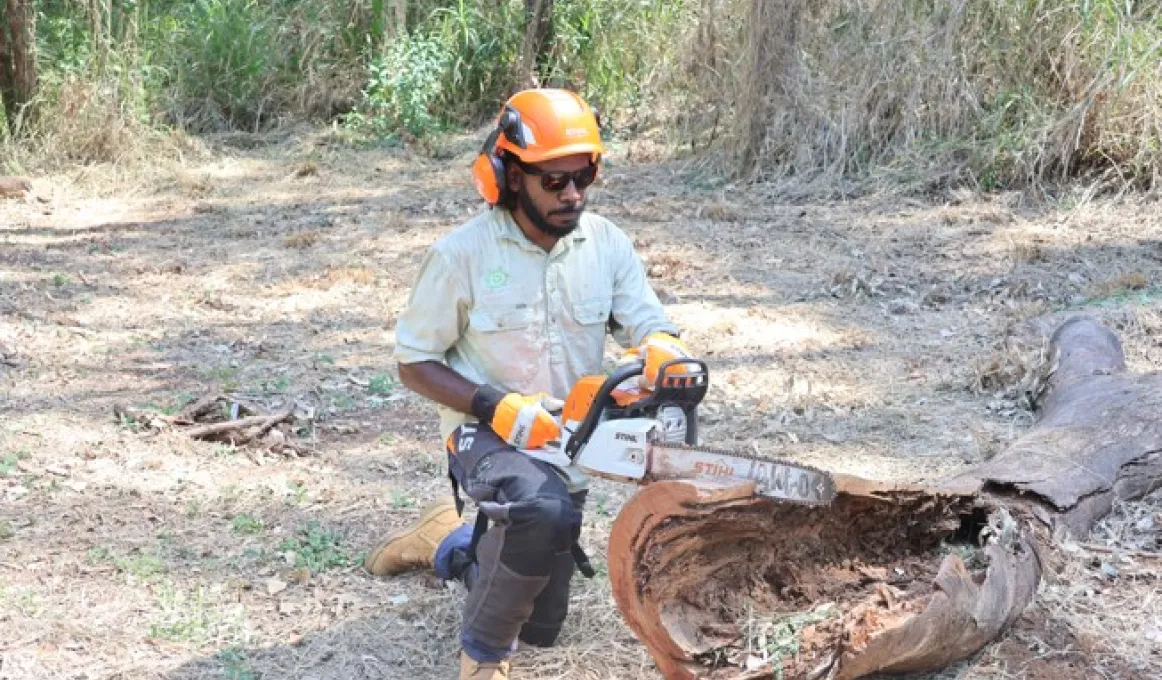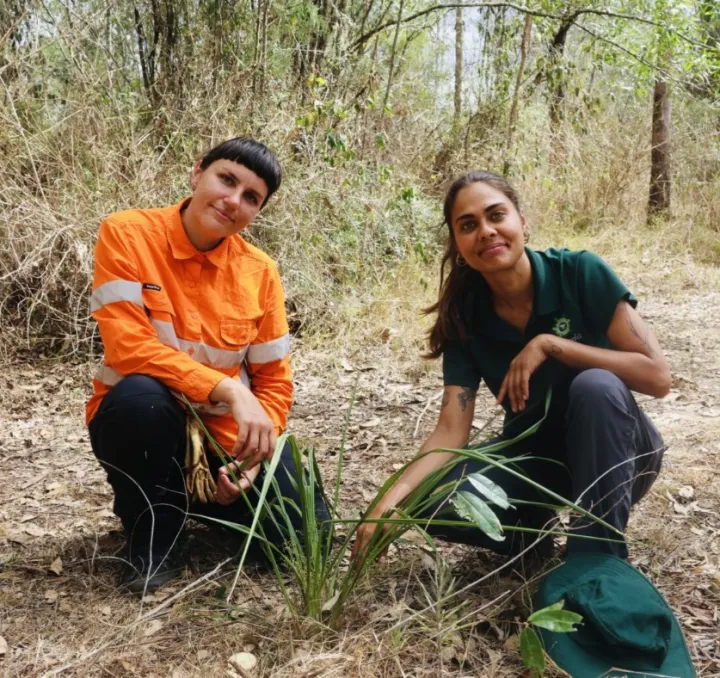Rangers restoring and learning on Country at Nudgee Waterholes

Indigenous Rangers at Nudgee Waterholes, 25 mins from Brisbane city are playing a crucial role in cultural and ecological restoration and in safekeeping and transferring Indigenous knowledge.
At the same time, the Rangers are gaining valuable work experience and opportunities to learn and demonstrate their knowledge through formal qualifications.
The Nudgee Waterholes reserve is a site of profound cultural and ecological significance for Goori people. For generations, it served as a vital gathering and food source for Aboriginal communities, particularly the Yagara and Turrbal peoples. The landscape is being revitalised through a collaborative land management program led by Nyanda Life Limited.
Dereece Gray is an Indigenous Ranger and recent graduate of a vocational qualification with Nyanda. He says the work involves a wide variety of tasks.
“I love the outdoors and working with mob on Country. Some of the jobs I do are whipper snipping, chain sawing, planting native trees and taking care of Country. My favourite job is going out and working with other organisations and rangers and helping them whenever we get a chance" Dereece said.
In just 4 months, the Indigenous Rangers program at Nyanda has seen 8 Rangers graduate with dual certificates - Certificate III in Rural Operations and Certificate III in Conservation and Ecosystem Management. Three of the 8 graduates are students from the Murri school in their Junior Rangers program. This accomplishment demonstrates the positive impacts of Commonwealth Rangers’ funding, the Ranger’s commitment, and the organisation’s local collaboration to support and expand operations.
Lucinda Landers and Shoshana William are also employed through the the Nyanda Rangers program.
"Through our work as Female Indigenous Rangers, we continue a long tradition of protecting Country, preserving culture, and nurturing those who will follow" Lucinda said.

Caption: Indigenous Rangers Lucinda Landers and Shoshana William with native Blue Dianella Flax Lilly.
The Waterholes are fed by a permanent spring and historically supported a rich diversity of aquatic life such as fish, turtles, waterfowl, and the elusive Rakali. The site also contains one of Brisbane’s last intact Aboriginal Bora Rings, a ceremonial ground of immense spiritual importance. However, decades of urban development, sedimentation, and invasive species have degraded the water quality and disrupted the delicate balance of the ecosystem.
The program to restore the waterholes is a partnership between Brisbane City Council and Nyanda Rangers. The partnership demonstrates a strengthening collaboration between First Nations peoples and Brisbane City Council. The approach centres on caring for Country, a philosophy rooted in Indigenous knowledge systems that views land management as a reciprocal relationship between people and the environment. The program includes regular monitoring of flora and fauna, guided bush regeneration, and the removal of invasive weeds that threaten native biodiversity.
The Indigenous Rangers Program at Nyanda contributes most directly to Closing the Gap Outcome 15 - Aboriginal and Torres Strait Islander people maintain a distinctive cultural, spiritual, physical and economic relationship with their land and waters.